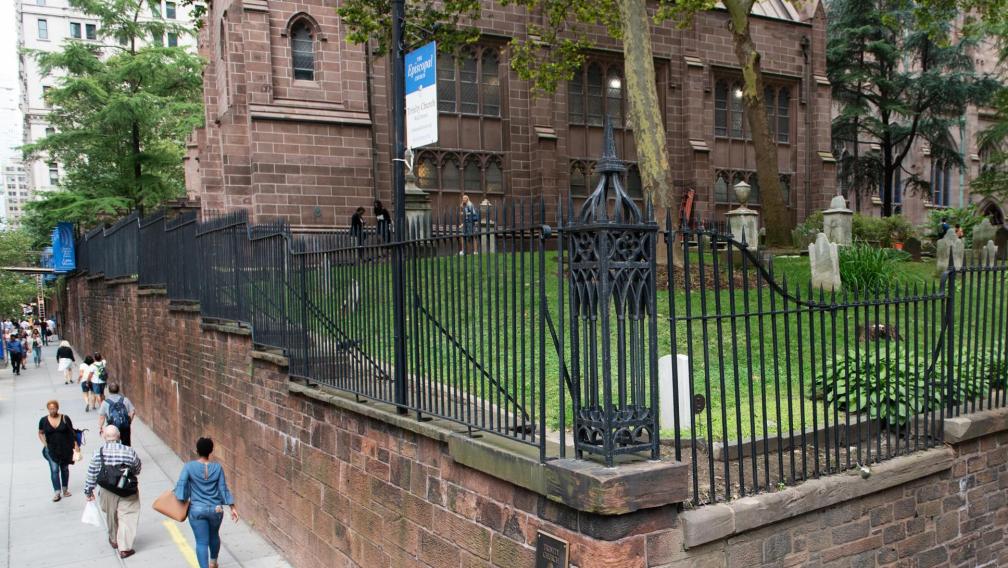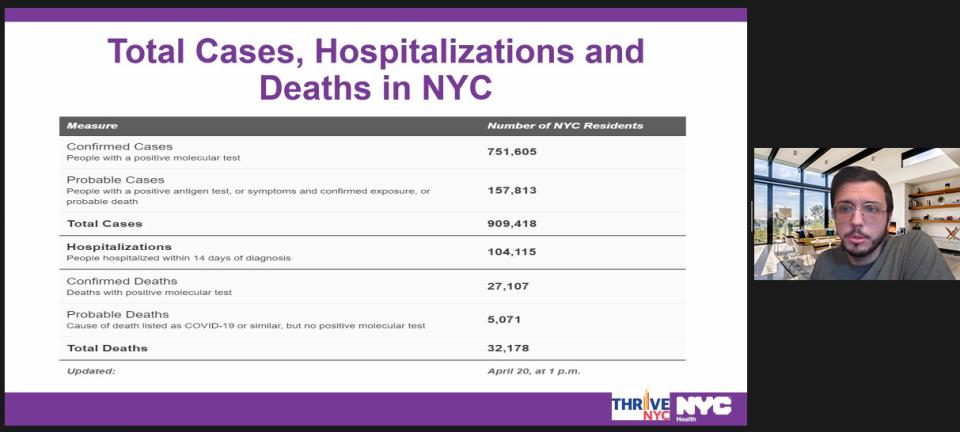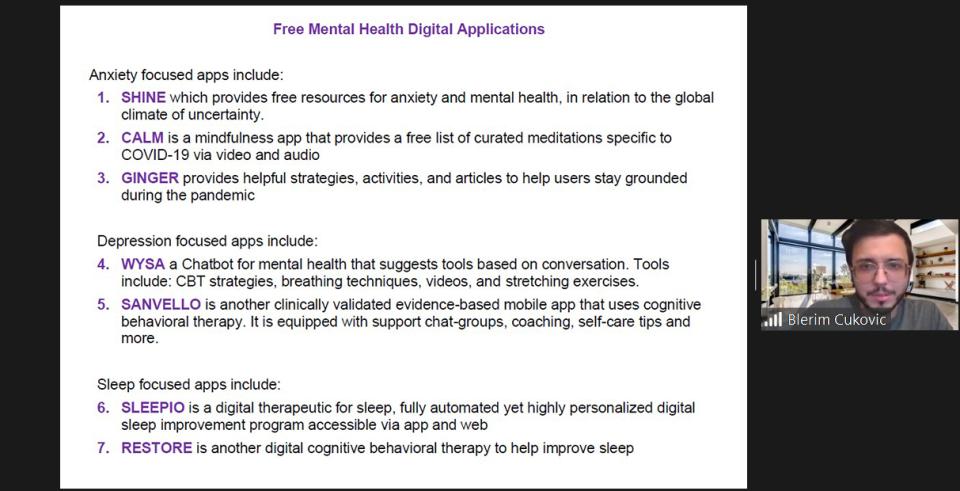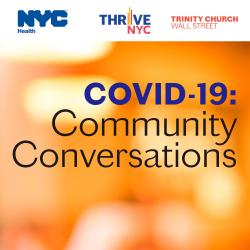Reflecting on Our New Normal

“Take a moment of silence together to really reflect on the impact that COVID 19 has had on all of us,” offered facilitator Blerim Cukovic of the Department of Health and Mental Hygiene (DOHMH) as he began our COVID-19 Community Conversation on April 20.
While sharing statistic after statistic, charts and graphs, of people affected and lives lost—909,418 cases in New York City, 104,115 hospitalizations, 32,178 deaths—Cukovic urged us to further consider the disproportionate effect the pandemic has had on Black and brown communities in particular, and shared links to resources such as Inclusive Therapists and the Black Mental Health Alliance.
In addition to the different types of trauma many of us are experiencing at this time—acute trauma, collective trauma, secondary traumatic stress, traumatic separation, traumatic grief—there is also a connection to pervasive systemic racism.
“It’s important to connect the two,” said Cukovic. “Systemic racism has roots in historic racism and is reinforced by cultural and institutional structures resulting in more police encounters and other triggers of trauma.”
When faced with this collective and individual trauma, these disrupted daily routines, the rising rates of anxiety and depression, one might ask, what can we do? How can we build resiliency?
That answer might look different for each person, but there are many available learning resources to help us cope and strengthen our resilience. Plus, our “New York spunk,” as Cukovic put it, combined with being more “introspective might help us bounce forward, instead of bouncing back.”
Join us at an upcoming session of COVID-19 Community Conversations: Mental Health Equity and Resilience with DOHMH on the first and third Tuesdays of every month. Register for free here and get more information and resources as a participant.








